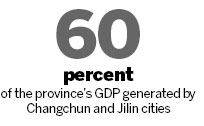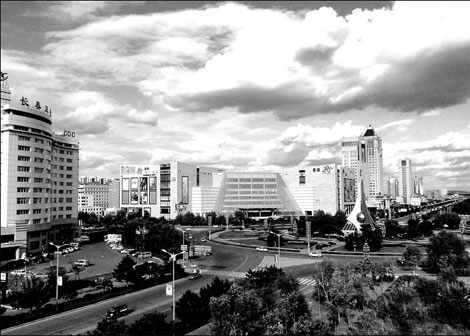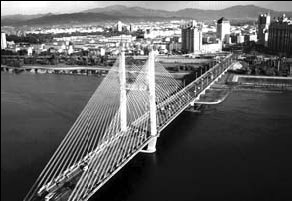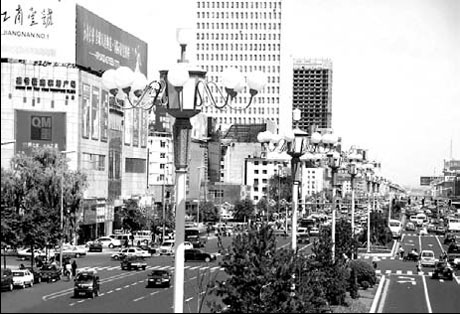Jilin Special: Neighboring Changchun, Jilin embrace joint development
|
Magnificent views of Changchun, the capital of Jilin province. Photos Provided to China Daily |
As aging heavy industries in northeast China continue to transform and modernize, Jilin province's neighboring cities Changchun and Jilin are moving toward further economic integration.
Together the two already generate 60 percent of the province's GDP.
The central government's call to rejuvenate aging industrial centers in northeast China, along with the new Tumen River development plan, provide unprecedented opportunities to Changchun and the province, said a senior official with the Changchun Municipal Party Committee.
The capital of the province, Changchun is the cradle of China's auto industry.
After decades of development, Changchun became the eighth city in the world to have a production capacity of more than 1 million vehicles a year.
Currently, Changchun has 26 vehicle manufacturers and 416 producers of auto parts. Around one fifth of the city's parts makers each had an annual output value above 100 million yuan last year.
According to local government statistics, more than 60 percent of all Changchun investments made during the past three years have gone to the auto and auto parts industries.

In accordance with the national plan to upgrade and strengthen the auto industry, the Changchun government is formulating a strategy to increase production capacity and locally made parts procurement.
Local authorities estimate the city will have an additional capacity of 1 million vehicles, 1 million engines, 1 million transmissions and 100,000 special-purpose vehicles by 2012.
The city of Jilin is home to one of the largest chemical industry clusters in the nation. It is also promoting further investment in part through creating a better business climate for enterprises.
In October 2007, Jilin Mayor Zhang Xiaopei headed a delegation to China's southern and eastern coastal regions to meet potential investors in tourism, electronic information, pharmaceuticals and food processing. In 10 days the city's enterprises signed 19 agreements worth 5.13 billion yuan with partners in those regions.
Zhou Huachen, the city's Party chief, also headed a delegation that visited Singapore to promote investment, which resulted in agreements for several large projects.
To create a better business environment, the city government has formulated new preferential policies that include a wide range of tax incentives.
The two cities also have well-developed infrastructure in transport, telecommunication and energy that will ease the process of integration.
"Accelerating development and integration of the two cities can give full play to their comparative advantages," said Sun Zhengcai, Party chief of the Jilin provincial Party committee.
"It can also optimize resource allocation and form a complementary and mutually beneficial development pattern," he said.
|
Linjiangmen Bridge is situated at the center of Jilin city. |
Planners foresee that further integration of Changchun and Jilin will also drive development in other cities in the province and rejuvenate old industries.
"It is an important strategic decision for the future development of our province," said Wang Rulin, governor of Jilin province.
Wang said that separate development of Changchun and Jilin would lead to waste of resources and more replication that would slow overall progress. "Integration of the two cities has become more and more necessary," said Wang.
The basic agreement on integration was made in July, when Changchun and Jilin began joint efforts in planning, marketing and public services.
In only a few months, the cities organized development of an industrial park in Shuangyang district of Changchun that will cover three square kilometers and have a total cost of 12 billion yuan.
"Highly optimistic about prospects for resource and market integration, the investor has decided to construct a high-grade complex including a shopping mall, a conference center and apartments," a local official said.
Another effort is a 30 sq km park for food processing and agriculture under development in Yongji county, Jilin city.
"I believe more projects will settle here due to the merging of Changchun and Jilin," said Song Xudong, director of Economic Development Board of Yongji county.
|
Jilin Avenue |

(China Daily 10/26/2010 page14)

















